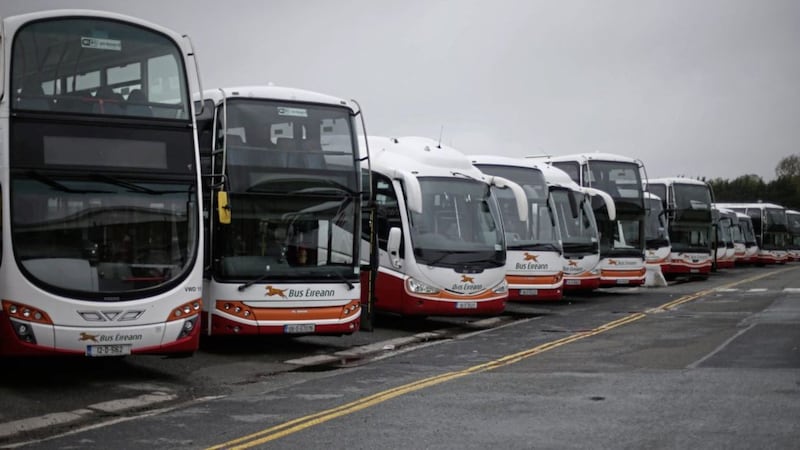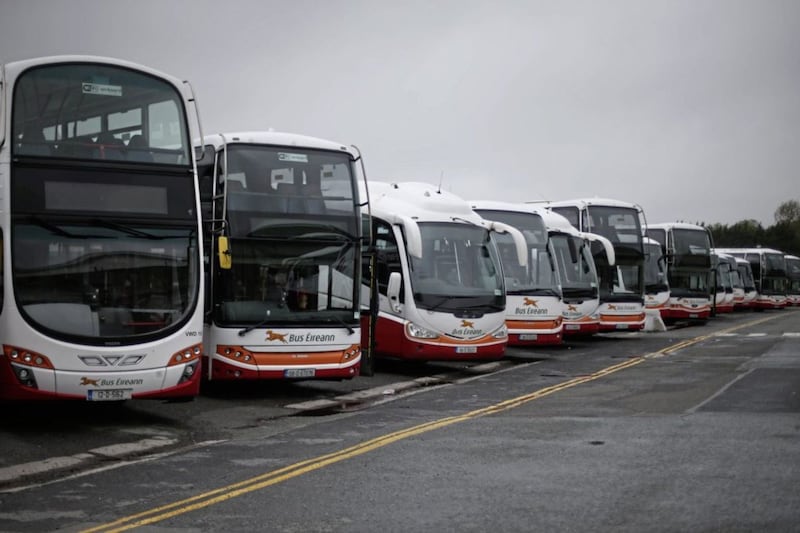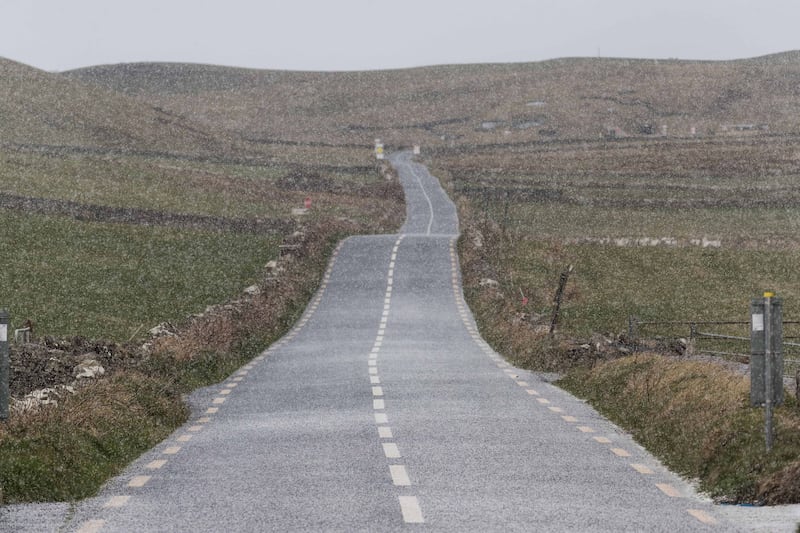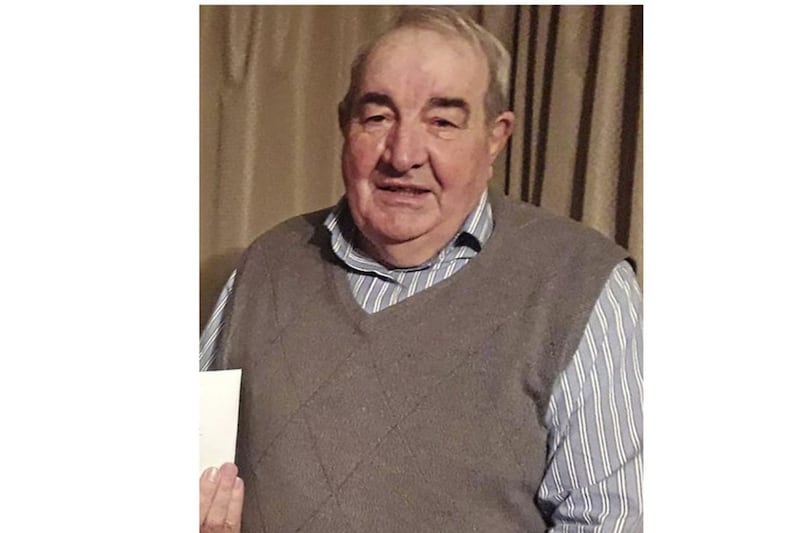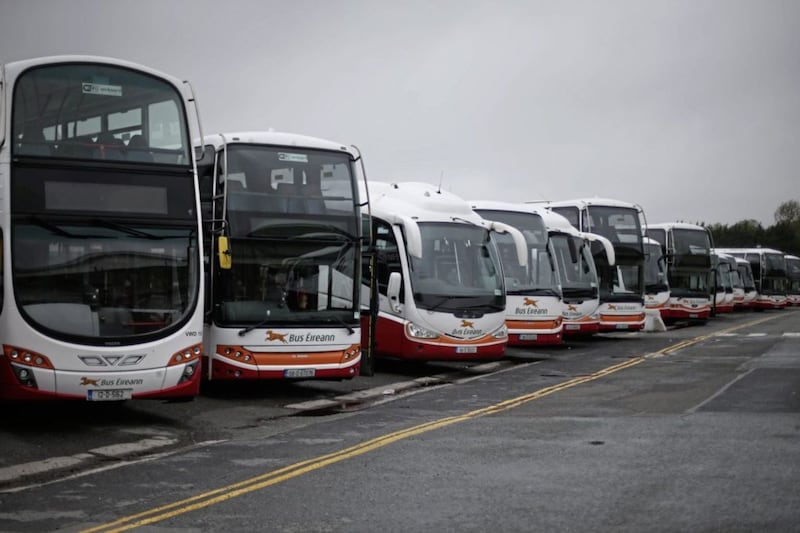Bus Eireann have identified three routes it could shut down after it suffered €9.4 million losses last year.
Union chiefs accused the company of playing Russian roulette with staff after circulating a document listing potential cuts on the road and to wages and benefits as it aims to save €30m and stop it going bust.
As talks opened in front of state mediators, Bus Eireann said they would save more than €1 million if they pulled the 833 Dublin to Derry, the X7 Dublin to Clonmel and the 021 Athlone to Westport.
The company document also suggested there is significant scope for savings in overtime, rotas, spare driver arrangements, hiring buses, sick pay, bonuses, expenses and flexibility.
Dermot O'Leary, National Bus and Rail Union general secretary, said it was an insult.
"It's absolutely appalling that management at Bus Eireann are playing Russian roulette with its own staff and the public transport system by deliberately provoking staff into bringing the entire transport system to a halt, ignoring long-standing negotiating practices," he said.
Mr O'Leary said Bus Eireann management were showing a lack of regard for the Workplace Relations Commission (WRC), which is facilitating the talks.
The negotiations got under way after unions suspended an all-out indefinite strike by drivers, back office staff and other employees due. The threat remains in place, unions have warned.
Unions representing 2,600 staff at Bus Eireann insist they will fight any pay cuts in a potential €30 million cost-cutting plan, claiming the situation is not a typical industrial relations dispute and was not caused by them.
Siptu's Willie Noone said there were concerns the company is intent on collapsing the talks.
"The company accepted on Friday (February 17) that our union is not going to agree with workers' pay and conditions being driven down to the floor," he said.
These talks must proceed with the acceptance by management that Siptu representatives are not going to assist in any way in the creation of a low-wage, low-service form of public bus transport that will not meet the needs of the travelling public, particularly in rural Ireland."
Wage reductions of up to 30% have been suggested amid Bus Eireann's losses of €9.4 million for last year.
The company document said last year's losses had been forecast to be €6.8 million, but swelled by almost 3 €3million due to third party claims, declining revenue, bus hire issues, overtime and absenteeism.
It said there are too many clerical staff – 60 managers, 58 at executive grade level and 220 other staff – and that the average salary of €45,000 is "excessive and cannot be justified".
It suggested a number of depots or garages will be closed and maintenance should be done at night.
It warned workers are not automatically entitled to overtime and proposed cutting Sunday premium payment from 100% to 20%.
It said expenses should be cut by 10% and wage increments should be stopped from March.
A spokeswoman for Bus Eireann said: "Bus Eireann have due regard to the current WRC process and have no comment while this is ongoing."
The Bus Eireann document claimed drivers' basic pay is about €32,000 but total earnings are "high".
It said its 1,378 drivers earned €47,000 on average last year and there were "a significant number earning over €60,000".
The document said a driver's 39-hour working week does not fit neatly into schedules and the current practice of two hours and 45 minutes of unpaid breaks a day.
It said that if Bus Eireann employed drivers directly related to schedules and to provide basic cover, it would need 986 drivers.
Bus Eireann said the drivers are not responsible for inefficiencies in rosters, overtime and spare driver cover, but a "more flexible and cost-effective approach" is needed.
The document said: "Schedules do not lend themselves to a standard 39-hour week and in the future we must ensure that where drivers are employed for specific routes that their contracts of employment reflect this.
"There also needs to be flexibility built in to reflect changes in schedule or for the provision of cover."
